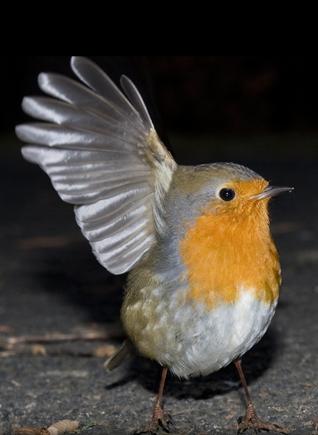Columnists
Hey, Dude!
by I.J. SINGH
Readers know that I often refer to Guru Nanak as Nanak, without the appellation of Guru. Similarly for all the other Gurus, when I append neither "Guru" nor "ji" - the latter is de rigueur in the Punjabi and Indian culture when speaking of or to anyone who deserves respect, that is, someone who is older, grayer or higher on the food chain. Teachers would routinely merit this, as would older relatives, including siblings. Political leaders, too, get the title, even though they may not get much respect.
At times, Sikh friends have lashed back in anger. And I admit, at times I, too, have wondered if I am being unnecessarily cheeky and provocative. Believe me; I understand my critics' point of view.
I have never known a Muslim refer to Mohammed quite as simply, without any honorifics, the commonest being: "Mohammed, Peace be upon him," sometimes written as PBUH. Many Christians would not utter the name of Jesus without the word Lord or Savior appended to it. Orthodox Jews feel so much in awe of God that they will write this word only as 'G-d', without ever spelling it out fully.
In the traditional Indian culture of my parent's generation, most women would not use the first name of their husbands in conversation with or about them. One heard euphemisms instead - some even most imaginative.
Students in India rarely ever learn the first names of their teachers, and would never use one in public.
Children rarely, if ever, use the first names of their parents, uncles or aunts. When I filled out a college application at age 14, it may have been the first time that I wrote out my parent's first names.
Luckily things are changing at a lightning rate. These were quaint customs of yore, largely meaningless today.
Out West, in Oregon, where I attended graduate school, manners were much more informal than in New York. I learned to address my research advisor as Dave rather than Dr. Gunberg. And when I acquired graduate students of my own in New York, I asked them to call me by my first name. There was no lessening of respect, merely greater comfort in communication.
I have lived in American cultural pockets where children addressed their parents by their first names - this I found awkward. It would never be condoned in the traditional Indian society that most of us come from. Then I saw that these children were just as respectful to their parents as any children might be.
Over the years I have become sort of a generic "uncle" to many young Sikhs; they often reflexively add the honorific almost like a last name. I hope not to be the sort of crazy drunk of an uncle that many families have.
So I was not caught entirely unaware when some readers took me to task for what they considered my insufficient respect to our Gurus and to the Guru Granth. All the extensions attached to names, to me, are like the tail that wags the dog. I have talked about these unnecessary appendages at length in an essay that is available on sikhchic.com.
But there is an odd sort of a distinction here between the sacred and the profane that bothers me sometimes.
Just days ago I was idly ruminating about our Sikh congregational prayer (ardaas). I must have heard and read the words a zillion times and missed the significance every time until now.
In a line addressed to God, it goes, "Hey Akal Purakh..." The best I can do with a translation would be "Hey, God..." Or, in contemporary American slang I might say "Hey, You!" or "Hey, Dude!"
Should one conclude that the words in the Sikh ardaas are not sufficiently reverential?
But then I see that in some hymns in the Guru Granth, the language for God preferred by the Gurus is one of familiarity, not reverence. Think of the hymn that usually precedes the ardaas, "Tu Thakur tu paeh ardaas ... Tu maat pitaa hum baarak tayray ..." Literally translated, it says "You are the Master, I beseech you ... You are the mother and the father ..." Is reverence or respect for God missing in these words? Surely not. Why then do we encounter here the language of familiarity rather than the words traditionally used to express respect?
Like many languages (such as French, e.g.), Punjabi, too, has a clear lexicon for indicating either respect or familiarity. "Tu" as opposed to "tusi" for example. In the subsequent lines of the same pre-ardaas hymn that I cited above, the Guru shifts to the language of respect and says. "Tumri gut mit ..." and not "Teri gut mit ..." The difference is small but critical. It refers to love that is not any less but now the Guru is speaking the language of awe and reverence.
People express love in a language that is more personal, less formal; more intimate, less focused on stature and position. Readers will find copious references - many more than the few that I have cited - to addressing God in both formal and informal language in the Guru Granth.
As an aside, in a conversation with a friend, Manjyot Kaur, it emerged that all Romance languages have distinct and precise construction and vocabulary for the formal and informal usages; this includes not only French, but also Spanish and Italian. Many languages, from Afrikaans to Yiddish, some that come from entirely different linguistic trees, show this trait, such as Punjabi, Hindi, Urdu, even Russian, among others. (In this, Hindi and Punjabi share a common lineage; Russian is of entirely different antecedents, while Urdu has a mixed pedigree.)
Modern linguists make a distinction between pronouns as informal (T-form that comes from the Latin tu) and the formal (V-form from the Latin vos). The T-form is derived from the singular; the V-form from the plural. For the user, the choice is largely determined by the difference in power and/ or relationship.
Middle English was not devoid of this delineation between the formal and informal language; witness the use of words like thee, thy, thine and thou that have since been discarded, except in prayer and worship, and the royal "We." Modern English is a bit of an anomaly and shows little syntactic distinction between the T-form and the V-form; perhaps because it has borrowed so heavily from so many languages from around the world and has become the essential coin of commerce. The distinction between the T-form and the V-form may have gotten lost in the wholesale borrowing from many languages and the parallel development of the nascent idea of equality of all people. As is said in jest, in modern English, the V-form "We" is now the prerogative only of royalty, editors and those who are infested with worms.
Punjabi, too, has the borrower's lineage, but it still retains the old world charm of the personal-familiar and the respectful-formal usages. Sometimes the distinctive use of the formal shows up most tellingly in mock respect and taunting; clear examples of such usage abound in Indic languages when words in V-form are slowly, deliberately and rhythmically enunciated, along with a wink - for enhanced significance of satiric context.
There must be an explanation for all this and here is my way of looking at it. There is the precise language of ideas and then there is the intimate language of friends and lovers that is no less precise but has a different purpose. Formal communication often rests on the difference in status and starts from that awareness.
We all collect titles in this world; they are like toys and, in the language of love, titles become superfluous. Between friends the language is informal, and as personal as between lovers. It can't get any more personal. Between strangers and acquaintances or where the lines of the relationship are clearly defined by authority, it is correct and formal. And that's why in Punjabi culture we do not address parents and teachers with the familiar "tu," but as "tusi." The Gurus were so imbued with love of God that the depth of their intimacy plainly shines through in their public pronouncements.
What else would it be but the language of love when speaking of God that is within us, not up on the mountaintop or in a different zip code on some undiscovered continent or planet somewhere in outer space? Personal love is not a petition; it is an experience.
So, in the language of intimacy: "Hey, Dude, be with me, let me walk in your shadow and live in your awareness."
March 1, 2010
Conversation about this article
1: Ravinder Singh Taneja (Westerville, Ohio, U.S.A.), March 01, 2010, 11:47 AM.
Satkaryog Sardar Inder Jit Singh ji! How about the "dhan, dhan siri" that precedes the appellation "Guru" - a favourite with many? I freely admit to using "ji-s" and "pyareo" or "gurmukho" in everyday Punjabi conversation. I grew up hearing Guru Nanak being referred to as "Baba Patshah" or "Sahib" and that is how I think of him. It is all habit, I guess. But the distinction is good. I wouldn't want my seventeen year old calling me Ravinder, despite the fact that I "treat" her like a "friend".
2: Atika Khurana (Columbus, Ohio, U.S.A.), March 01, 2010, 2:09 PM.
Reading your article, I am reminded of my brief interaction with Dr. Jaswant Singh Neki last summer. He had been invited as a chief guest for a day-long Gurbani Vichaar workshop that had been organized at the local gurdwara in Columbus, Ohio, U.S.A. There was something surreal and enrapturing about his presence. His eyes and his words - the two channels through which he expressed himself - projected a unique blend of pyrotechnic wit, open-mindedness, unconditional love, humility and light-heartedness. Impressed with his unconventional approach to Sikhi and his 'sadaa vigaas' persona, I went up to him after our session was over with the following very personal question: "I am going through a very busy phase in my life, and I struggle to find time to recite Japji in the morning before starting my day. Can you give me some advice?" I still get teary eyed when I recall his response which was, "Beta ji, you need less than a minute to give a jupphi (hug) to your Waheguru, and that is all that is needed!" Uncle Neki, if you are reading this, I want to say "Thank You!" from the bottom of my heart.
3: Gurmeet Kaur (Atlanta, Georgia, U.S.A. ), March 01, 2010, 5:20 PM.
With all due respect to the logically put thought process, I would like to point out that there is a difference in personal address and public address of an entity, especially the most highly revered Guru Granth Sahib. In my private conversation with Guru Sahib, I may refer to him as Guru but in public, I would use and expect others to use Guru Sahib or Guru ji as the proper address. I don't see the need to save a few letters by reducing the universally accepted address of Guru Granth Sahib to Guru Granth. And, I'm sorry for being in a disagreeable mood today but, also, 'Hey, Akal Purkah' does in no way translate to 'Hey, Dude' ... but 'O Timeless Being".
4: Hardeep Singh (Atlanta, Georgia, U.S.A.), March 01, 2010, 7:07 PM.
Words, titles and salutations are used in an attempt to quantify our feelings and emotions. The infinite variations in the degree of our emotions and their expressions make it a very challenging task and almost impossible to give any shape or stage of entire completion. To me it is something like naming every star in the sky or like capturing our mother's love and sacrifices for us, on a piece of paper. But excreting our basic instinct of being an artist, we as writers make attempts to express our emotions and feelings, using words and other tools of the literary world. Words and salutations in every language are described with meanings to bring standardization in the communication and expressions. But at the individual level, to record our felt degree of feelings or a realized moment, we pick a word and give it our own connotation, to reflect the recorded feeling or moment. Like sometimes in a flood of emotions and in my personal moments, I call my daughter 'Makhan', which literally means butter in English, but I have no intent to limit my love for her to a brick of fatty acids. Though, when I am with her friends, I avoid that expression of love, and address with the name they understand and connect with. So, quantifying emotions and feelings is surely a personal choice of expression and is also a challenging task both for the expressionist as well as for the audience. As a reader, I respect the writer's choice of words or salutation as his/ her codification of his/ her experience, and as a writer I choose the words or expressions respecting the domain in which I am presenting it. So the challenge is on both sides. Further, I learnt that the magnitude of the challenge of expressing the feelings and emotions is also reflected in Guru Sahibaans' submission of their disclaimer while sharing their comprehension of the Divine, by referring to the Divine as 'akath' (cannot be adequately described in writing or speech) and 'agochar' (cannot be adequately discussed or debated).
5: Parveen Kaur Dhatt (Brampton, Ontario, Canada), March 01, 2010, 7:11 PM.
I agree with Gurmeet Kaur ji. Words in Gurmukhi are lost in English translation; often, there is no English equivalent. That is the reason why we teach Punjabi to our children, it is the primary language of our religion. If we were to recite Japji with the English translations, would it be relevant or inspiring? Would it be sacred? 'Hey, Dude' sounds like a great way to engage the younger crowd, a useful name for a workshop on Sikhism but not a term for reverence of our Gurus or God.
6: T. Sher Singh (Guelph, Ontario, Canada), March 01, 2010, 7:55 PM.
I recall that a few decades ago, I overheard two young cousins - they were approx. 6 and 4 then - going over a 'Sunday school' lesson with their mother. "This one," said the elder of the two, "is Guru Nanak. That one is Guru Gobind Singh. This one is Guru HarKishan. And that one ... er.. hm-mm-m - er - Mom! Sorry! I don't remember the other guys! Who is this fellow ...?" He queried, pointing to another picture. It provided us great merriment that day, as we corrected them between guffaws. They simply looked at us, confused as to why it was wrong to call them "guys" or "fellows". No harm was done. They are both grown-up now, each married, with children of their own, and full-fledged professionals. And wonderful, respectful, observant Sikhs ... all of them! (There is no message intended in this anecdote. Just thought I'd share the story, though.)
7: Sangat Singh (Kuala Lumpur, Malaysia), March 02, 2010, 3:02 PM.
Hi, Dude. May I first of all mention that no disrespect is intended. I hope the following story does provide an imaginative child's amusing version. A young second-generation Indian in the U.S. was asked by his mother to explain the Hindu significance of Divali to his younger brother. This is how he went about it ... "So, like this dude had, like, a big cool kingdom and people liked him. But, like, his step-mom, or something, was kind of a bitch, and she forced her husband to, like, send this cool-dude, he was Ram, to some national forest or something ... Since he was going, for like, something like more than 10 years or so ... he decided to get his wife and his bro along ... you know ... so that they could all chill out together. But dude, the forest was re-ee-eal scary shit ... really man ... they had monkeys and devils and shit like that. But this dude, Ram, kicked with darts and bows and arrows ... so it was fine. But then some bad gangsta boys, some jerk called Ravan, picks up his babe (Sita) and lures her away to his hood. And boy, was our man, and also his bro, Laxman, pissed ... all the gods were with him ... So anyways, you don't mess with gods. So, Ram, and his bro get an army of monkeys ... Dude, don't ask me how they trained the damn monkeys ... just go along with me, ok ... So, Ram, Lax and their monkeys whip this gangsta's ass in his own hood ... Anyways, by this time, their time's up in the forest ... and anyways ... it gets kinda boring, you know ... no TV or malls or shit like that. So,they decided to hitch a ride back home ... and when the people realize that our dude, his bro and the wife are back home ... they thought, well, you know, at least they deserve something nice ... and they didn't have any bars or clubs in those days ... so they couldn't take them out for a drink, so they, like, decided to smoke and shit ... and since they also had some lamps, they lit the lamps also ... so it was pretty co-oo-ol ... you know, with all those fireworks ... Really, they even had some local band play along with the fireworks ... and you know, what, dude, that was the very first, no kidding ... that was the very first music-synchronized fireworks ... you know, like the Fourth of July stuff, but just, more cooler and stuff, you know. And, so dude, that was how, like, this festival started." The mother fainted.
8: D.J. Singh (U.S.A.), March 02, 2010, 7:24 PM.
The term 'dude' is an American English slang used for an individual, typically male, extremely fastidious in dress and manner; or someone who has never lived outside a big city. It has been used to denote an ill-bred and ignorant, but ostentatious, man from the city. The female equivalent is 'dudette.' I sincerely believe that belief in God and religion is a personal affair. Nevertheless, I J Singh's essay is thought-provoking. We all know that the Mool Mantar sums up the characteristics of the Supreme Being. Is 'dude' then conceptually the image of God, i.e., male (in the physical sense), ill-bred and ignorant? God is ultimately our father and mother. One might address friends and fellows with 'Hey, dude, what's up?', but would you address your parents similarly? We all understand the value of bani in Sikhism. Bani guru guru hai bani. This essay made me think that bani needs to be quoted and interpreted in its context and not merely translated in fragments. Baba Ram Rai mis-quoted gurbani. The rest is history! [Editor: He did not mis-quote it; he intentionally distorted it!]
9: I.J. Singh (New York, U.S.A.), March 05, 2010, 7:42 PM.
I had missed Ravinder Singh Taneja's note when I went over the comments. Now that I see it, I think my good friend Ravinder took to heart my words in the essay that "Sometimes the distinctive use of the formal shows up most tellingly in mock respect and taunting; clear examples of such usage abound in Indic languages when words in V-form are slowly, deliberately and rhythmically enunciated, along with a wink - for enhanced significance of satiric context." Thank you, Ravi; much appreciated.
10: Ravinder Singh Taneja (Westerville, Ohio, U.S.A.), March 07, 2010, 8:35 AM.
IJ "ji" - wink, wink!
11: Devinder (Delhi, India), March 08, 2010, 12:07 PM.
All my life I have heard fellow Sikhs saying Guru Sahib, Guru Ji, Baba Ji, with respect and gratitude. I therefore request I.J. to address in the same manner for I am sure no matter whatever he might have absorbed of western culture or for that matter of any other language, he being a Sikh should continue to accept these traditions. Further, I am sure he would not like to dilute the aspect of respecting our elders without that very word 'ji'. If I recall correctly, he addressed his own father as Pitaji and mother as Biji, as described by him in one of his earlier articles.
12: I.J. Singh (New York, U.S.A.), March 08, 2010, 1:27 PM.
I understand well the point that Devinder makes. One slight matter of correction - I have never mentioned, either in this essay or anywhere else in any of my writings, how I addressed my parents because the matter never came up. The purpose of this essay was not how we should or shouldn't address parents, the Gurus or God. I leave that to individual choice and the cultural ambiance that shaped and nurtured us. The sole idea here was to explore the use of formal and/ or informal language in our cultural context along with some examples from Sikh practice and gurbani. Call it an exercise in semantics. Speech and language are very powerful determinants of how we think and express ourselves. How words express what we are fascinates me. I think words are magic; I am always fascinated by how we use them and how the Gurus used them. And part of the magic comes from humor. I hope readers haven't lost sight of the fact, that in the essay, I am trying to explore the issue using, inter alia, humor as a tool. I never have, I don't intend to, I don't suggest anyone should, and I don't know anyone who does, refer to parents or Gurus or God with a "Hey, Dude!" ... trust me on this!
13: Devinder (Delhi, India), March 09, 2010, 5:07 AM.
IJ Singh Sahib, I appreciate your comments following that of mine. I apologize for having inadvertently mentioned how you address your parents, (I vaguely remember an article appearing in this site which I wrongly connected with you, I regret the mix-up on my part). Please be assured that I do appreciate all that you have mentioned in your comments and also the point you are driving home.
14: Aryeh Leib (Israel), March 09, 2010, 9:06 PM.
Many are the educators who purposely employ the tactic of throwing out a radical, shocking proposal for the purpose of stimulating discussion. Our Professor Emeritus (ji!) is no exception; as we can see by the commentary, it's an extremely effective method. This article appeared on another site as well - and a rather different tenor of discourse rapidly ensued by those commentators who, "took the bait" (despite the protestation to the contrary of one of them!). It has long been my contention that it is the person who ennobles (or dishonors) the title, rather than the reverse; a title represents a set of values to live up to - not something that confers privilege.
15: Simran (Oceanside, U.S.A.), March 12, 2010, 6:07 PM.
There is an experience beyond words, language and semantics that gurbani is always pointing towards!






